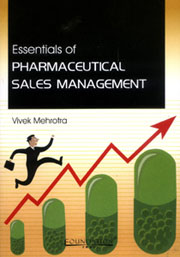Book contents
- Frontmatter
- Contents
- Acknowledgements
- Introduction
- 1 Role
- 2 Performance Management
- 3 Territory and Market Knowledge
- 4 Joint Fieldwork
- 5 On-the-job Training
- 6 Managing Key Customers
- 7 Development of Weak or Underdeveloped Territories
- 8 Performance Counselling
- 9 Management of Vacant Territories
- 10 Induction of a New Medical Representative
- 11 Organising and Conducting Successful Meetings
- 12 Monitoring
- 13 Performance Appraisal
- 14 Managing People Productively
- 15 Interface with Marketing
- Postscript
- Appendices
6 - Managing Key Customers
Published online by Cambridge University Press: 26 October 2011
- Frontmatter
- Contents
- Acknowledgements
- Introduction
- 1 Role
- 2 Performance Management
- 3 Territory and Market Knowledge
- 4 Joint Fieldwork
- 5 On-the-job Training
- 6 Managing Key Customers
- 7 Development of Weak or Underdeveloped Territories
- 8 Performance Counselling
- 9 Management of Vacant Territories
- 10 Induction of a New Medical Representative
- 11 Organising and Conducting Successful Meetings
- 12 Monitoring
- 13 Performance Appraisal
- 14 Managing People Productively
- 15 Interface with Marketing
- Postscript
- Appendices
Summary
As mentioned earlier, 80% of the sales are contributed by 20% of the customers, and the remaining 80% customers contribute to just 20% of any territory's sales. While updating the list of doctors, your team members should identify the 20% customers. The performance of a territory largely depends upon how well your team members can persuade these doctors to generate prescriptions.
Advantages of Meeting VIP Doctors
To ensure continuous achievement of objectives
Once the VIP doctors of any territory start extending their support, the achievement of objectives will never be a problem. These VIP doctors alone will complete 80% of the task.
To cash in on trendsetters
Being the most important doctors of the territory these doctors would have a good reputation not only in the local towns but also in the nearby areas. Once they start prescribing the product/s, the other doctors of these areas too will follow his prescriptions. This will give additional opportunities for business.
To ensure the optimum utilisation of resources
You know already that 80% of sales come from 20% of customers. If this 20% of doctors are given special attention in terms of time, efforts and inputs, it will be reciprocated by an increased support from them.
To ensure continuous support
In case one of your team members is promoted or transferred, till the time a new person is appointed these VIP doctors (if covered regularly in the past) may sustain the sales of the territory at a particular level.
- Type
- Chapter
- Information
- Essentials of Pharmaceutical Sales Management , pp. 72 - 90Publisher: Foundation BooksPrint publication year: 2007



